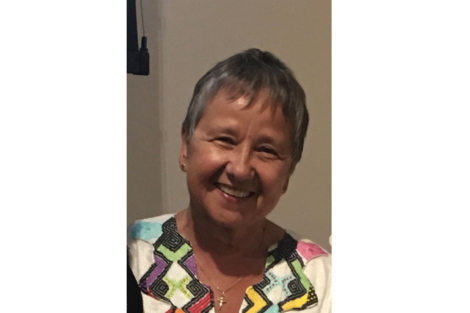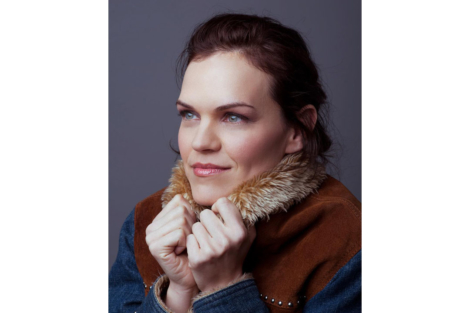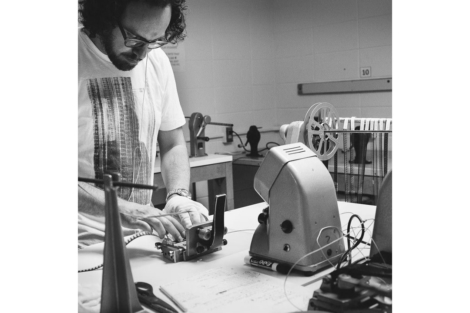It took me a while to decide to go back to university for a second degree. It wasn’t the exams or the countless hours of studying that made me hesitate. The financial cost, of course, had to be weighed in and managed, but what really made me nervous was wondering how I would feel about being an older student among mostly 20-year-olds.
After speaking to a few other mature students, whose ages ranged from the mid 30s to the early 70s, I realized that worrying about how to fit in among much younger peers is a common concern. But all the students I spoke with had come to terms with it, and were all happy that they decided to come back to school.
Mohsina, an undergraduate student in English and Film at UTSC, had one year of university-level education from Dubai when she came to Canada. Because of the difference in the education systems, she had to spend a year completing her high school education before her academic credits from abroad could be transferred. She says that she was initially hesitant about going back to school — it wasn’t until her mom came to Canada, seven years after Mohsina, that she actually took the step.
“My mom came here in… 2012 and she was like ‘why don’t you finish your studies?… Come on, at least try.’”
Mohsina went to an adult high school and discovered that there were “so many students like me… I didn’t feel odd over there… But then when [my mom] started pushing me for university, I was like, that’s a whole different game… [but] then I realized it’s not that bad.”
Still, it took her a while to get used to university life. When she realized that some of her professors were around her age, Mohsina started to have doubts. She recalls asking herself, “they’re already done, what am I doing?”
This affected her studies because it made her “hesitant to study properly the first semester, and [she] wasn’t getting good grades.” She often felt like she didn’t belong, like she was behind. But in her second semester she started going to office hours. There Mohsina met a professor who boosted her confidence. “She told me there were professors here who started teaching in their 50s… and I think because of her I gained my confidence back.”
Another English student, Marlene, has taken classes since she retired seven years ago. “I am amazed by the brilliance of the young students in my midst,” she says. “They are always welcoming. It is especially comforting when group assignments are required… they always manage to include me.”

Mature student Marlene Colmer. PHOTO COURTESY OF MARLENE COLMER.
She recalls one course where a group assignment was an essential part. “I was concerned about being accepted into a group. After all I am 50 years older than many of the students.” She was relieved to discover how welcoming the other students were; she was able to make friends among the younger students. She especially noted a 19-year-old student who was so excited to have befriended Marlene that she called her boyfriend abroad to tell him she had a new friend who was 70 years old.
Nancy, a student who is double majoring in Music & Culture and English, said that she enjoys being an older student. Speaking on starting university, she says that “I owned it, I let everybody know how old I was. But I also acted… like we were on the same level.”
She says that the key for her has been that she always “saw them as equals, but I owned my age so at times I would step back. If I was concerned about one of my younger classmates, or if I thought I could say something about my life experience that would help them, then I’d bring that in.”
She noticed that this is an attitude that many of her younger peer students seemed to appreciate. “Some of the young people, they’re the ones who come to me, they want my friendship, right? And I value that.”

Mature student Nancy Dutra. PHOTO COURTESY OF NANCY DUTRA.
She thinks that a reason for this trend is that she takes note of students’ strengths and “[makes] a point of telling them, so when they need help either with an assignment or something in life, they come to me for advice, but then we can also joke… so in that moment, I’m the older person who’s like a mom or an aunt figure to them but at the same time I’m just like their friend.”
English professor Daniel Scott Tysdal has his own experience of being a mature student. He used the first three months of a sabbatical to complete an intensive master’s program in film at Ryerson University.
“I was super shy about it,” he says. “Among colleagues, among friends, among family. I just thought I have a career and I have a life and I have this path and it just seemed… people would think I was silly.”

Mature student and Professor Scott Tysdal. PHOTO COURTESY OF SCOTT TYSDAL.
Then when he did tell his friends and family, he found that most were supportive. Even at the department, his colleagues thought that it could be a great development also for the program that he teaches.
Still, coming to Ryerson, he felt self-conscious. “I was shyer than I was expecting to be, and I was much more self-conscious than I was expecting to be. Just that way when you imagine someone is looking at you and really no one even noticed that you’re there.”
Sometimes he would also feel self-conscious about his comfort levels when using certain technology, compared to some of his younger peers. “The instructor is showing it up on his screen and everyone’s moving along… and he’s a good teacher because he’s teaching at the level that really the most people in the class were at, but [I’m] still trying to find my files, right?”
But then he asked his classmates for help. One particular peer student ”basically just abandoned his assignment and sat with me and then… coached me along and helped me with that and it was really good because then he gave me more confidence.”
When I asked professor Tysdal why he wanted to do this program, he says “I always loved movies and writing movies, and then in grade eight graduation I got a video camera so I started making videos… I thought I was going to make… great horror movies, that was my dream.”
As an undergrad, he struggled with mental health problems and wasn’t able to pursue a major in film, but ended up focusing on poetry.
“It was always in the back of my head… I would still love to try something to do with film. I felt like, what am I going to regret when I’m… 70 or 80, what will be that thing that I’m [thinking] I wish I had done.”
For Nancy, it was a bit different. “I always knew what I wanted to do, but none of the majors fit exactly, and so I ended up working and I enjoyed the things I was doing. But then when I had my first child, I found that I couldn’t continue performing music, that’s what I had done for a number of years, because it meant late nights and then early mornings with my child, and I just couldn’t do it… So what I did was I started looking into programs.”
Marlene, on the other hand, has mainly focused her life on family and a career as a teacher, but discovered she wanted to continue educating herself. She initially started taking evening classes to improve her teaching skills.
“Then in the 80s I met a former high school friend who was taking university courses and she encouraged me to take night courses with her.” Eventually, Marlene had to give up the night courses because of other commitments.
Things changed, though, when she retired from work. “I have had the honour of having the love and support of a wonderful husband and remarkable mother-in-law all through my career. Before my mother-in-law died at age 96, I promised her that when I retired I would return to university. I retired in June 2012 at age 65, and I returned to the Scarborough campus of the University of Toronto in September 2012.”
When asked what she likes best about studying, Nancy says “just having the opportunity to listen to music, to explore music, to talk about music… It was hard in the beginning because I had been out of school for so long. But I worked hard and eventually with time it just became part of my new life.”
“I’m surprised by how much I love speaking with my professors. I thought I would be intimidated, but I’m not.”
In her first year, Nancy didn’t speak much with the professors. “I really was just acclimatizing to the student experience. But in my second year I started to ask questions even in the larger classes. It really was just about the work so once I got over that initial… culture shock of being in school… if I wanted to learn something I just put up my hand and asked the question.”
She also found that the other students around her were helpful. “Especially in my first year, I would just ask the young people around me how things worked. I didn’t even know how basic things worked in the school… so I really just asked people. I said ‘sorry, this might be an embarrassing question, but how does ‘x’ work?’”
After her undergraduate degree, Nancy plans to continue on to grad school. “I like it so much. I don’t want to stop the conversations with the professors. I’m learning and, yeah, I’m a nerd.”
Mohsina also plans to go on to grad school. Mohsina advises any prospective mature students to “definitely… go for it. It doesn’t matter if you’re old or not.”
Professor Tysdal reasons similarly. “I don’t think you’re going to regret it… For me, I don’t think I could have regretted it because it worked a way I couldn’t even have dreamed it would, it was perfect. I now teach things I learned there and I make things I learned there. But the other thing that could have happened is I could have done it and [discovered] this is not for me… But at least then I would have known that… Otherwise you can just go on wondering and then suddenly maybe it’s too late. I would say definitely, I don’t think you can regret it.”
Summarizing her university experience, Marlene says, “I love learning. I love meeting and encouraging students. I love the fact that I am old enough to be the mother of any of the professors I have met.” She adds, “People my age ask me what my goals are. These courses are too late to add to a pay scale and I don’t care about a certificate. I do care about challenging myself and continuing to learn as long as I am able.”


